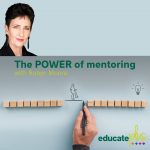University of Otago’s fundraising during lockdown
Creative connections support team’s fundraising success
Despite working from their home bubbles, complete with children and pets flitting past during Zoom meetings, members of the University of Otago’s Development and Alumni Relations Office (DARO) haven’t been held back by the constraints of lockdown, continuing to fundraise successfully and work together as a cohesive team.
Through a combination of phone calls, Zoom meetings, Microsoft Teams chats, emails and online newsletters, in the past month DARO has managed to successfully launch the University’s major student hardship fund, keep connected with alumni through regular online publications and virtual events, engage with donors, explore new fundraising opportunities and meet up most days for morning or afternoon tea.
“Everyone has really risen to the challenge, they’ve been creative in how they’ve approached their work, and been really mindful of each other and everyone’s individual circumstances,” says Director of DARO Shelagh Murray. “I’m really proud of them. It’s been a tough time and their professionalism and care for each other has been amazing.”
Shelagh says the focus for the team during the lockdown has been to support the University’s student welfare initiatives; manage the stewardship of philanthropic giving arising from the COVID-19 pandemic; and to keep connected with alumni and donors.
Central to their work has been the launch of Pūtea Tautoko, the University’s student hardship fund. DARO led the announcement of the fund with a letter from the Vice-Chancellor Professor Harlene Hayne, emailed to all alumni and friends on 24 April.
The response was immediate and unprecedented – in the first hour $12,000 was raised, and by the end of the first week, more than $95,000 had been donated.
Working on the appeal for Pūtea Tautoko has been Development Manager Annual Giving Stephanie Miller’s priority during the lockdown.
“This is the most collaborative appeal I’ve ever been involved with, with the Vice-Chancellor, Human Resources, Communications, the students’ association and DARO all working together – and swiftly too.
“It has been great to be able to prioritise our alumni in the delivery of our messages – like sending the email from the Vice-Chancellor to them in advance of the media release being put out.”
Taking advantage of the change in daily routines, another initiative the team has worked on during lockdown is Development Managers making check-in calls to alumni donors, initially focussing on those who didn’t have an email address and those over 70.
“This is something that wouldn’t normally have such a team effort behind it,” says Stephanie. “Picking up the phone to people we wouldn’t usually have time to call will go such a long way in solidifying our relationship with these donors.”
Senior Development Manager Sabrina Ragan says the calls have “sparked some great conversations, and one verbal intent of a $30,000 gift”.
Lockdown has meant people are more likely to be home and so more easily reached, and it has also given some of the Development team the time to reconnect with older alumni who they felt might be feeling isolated.
Development Manager Graeme Mullin says he has had a “fantastic response” from the calls. “We have already talked about hosting more reunions on campus and engagement with current students, especially from retired business leaders keen to share knowledge.”
Also during this time, significant donations have come in to support the work of Otago academics who have played key roles in the public health and governmental response to COVID-19.
“High profile academics such as Professor Michael Baker have generated a lot of philanthropy at this time, including a $215,000 grant from a donor’s trust,” says Shelagh.
In response to missing face-to-face options for engaging with alumni and donors, the team has come up with a host of creative solutions. Rather than the usual regional What’s On newsletters emailed out to inform people about lectures and events in different parts of New Zealand, a special What’s On@home edition is being emailed fortnightly to all alumni globally. Content includes stories about alumni, Otago initiatives and research, as well as videos, podcasts and quirky items sourced from around the University community to keep alumni and their families entertained.
Alumni Engagement Manager Donnella Aitken-Ferguson has also launched her first virtual afternoon tea event with the Highlanders rugby team.
“Despite being a little nervous about the prospect of hosting an online event, we were determined to continue to offer our alumni unique experiences,” says Donnella. So the alumni office hosted the virtual afternoon tea for alumni and their whānau, with special guests Highlanders CEO Roger Clark, Coach Aaron Mauger, and Captain James Lentjes.
“Alumni appreciated and enjoyed the opportunity to connect directly with the Highlanders, and we loved receiving emails from our alumni afterwards thanking us – proving there was nothing to be nervous about after all.”
As for the pros and cons of working remotely, DARO has found an unexpected upside – the team feels more connected to each other now, rather than less.
“One of the nicest things about working from home is we can have inclusive tea-times with our remote colleagues. Taking a tea-break together is a big part of our team, but when we were in the [Dunedin campus] office our colleagues in Christchurch and Wellington couldn’t join in. Now they can, and it’s been really nice to spend more time with them,” says Stephanie.
Christchurch Development Manager Helen Hayes echoes this sentiment: “I have loved everyone in the team being on Zoom, we can hear and see everyone properly and it’s much more inclusive.”
Graeme also says the morning and afternoon tea Zoom sessions have increased connection. “Strangely I feel I know my colleagues a lot better since having a glimpse into their daily routines.”
Other advantages of working from home cited by the team include the lack of commute; more flexible routine; feeling closer to family and more time for walks with pets; not having to share an office and disturb others with Zoom meetings; more cuddles; sleeping in; and being able to bring in the washing when it looks like rain.
But it hasn’t all been plain sailing, especially for those trying to balance the demands of work and the needs of young children, and for those helping children with schoolwork.
“Working with two pre-schoolers is interesting, I have lost count of the number of times they have wandered into meetings – thankfully most of the time fully clothed,” says Graeme.
Development Manager and mum to two young children Angie Hughes misses the lack of separation between home and work life, and would like not to feel “always behind, as sitting down to get any task completed is very difficult these days”.
Like everyone in the DARO team, and everyone the world over right now, Angie also misses not being able to connect face-to-face with colleagues, donors and alumni, because “despite technological advances, nothing replaces it!”












